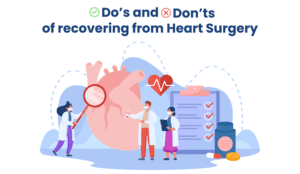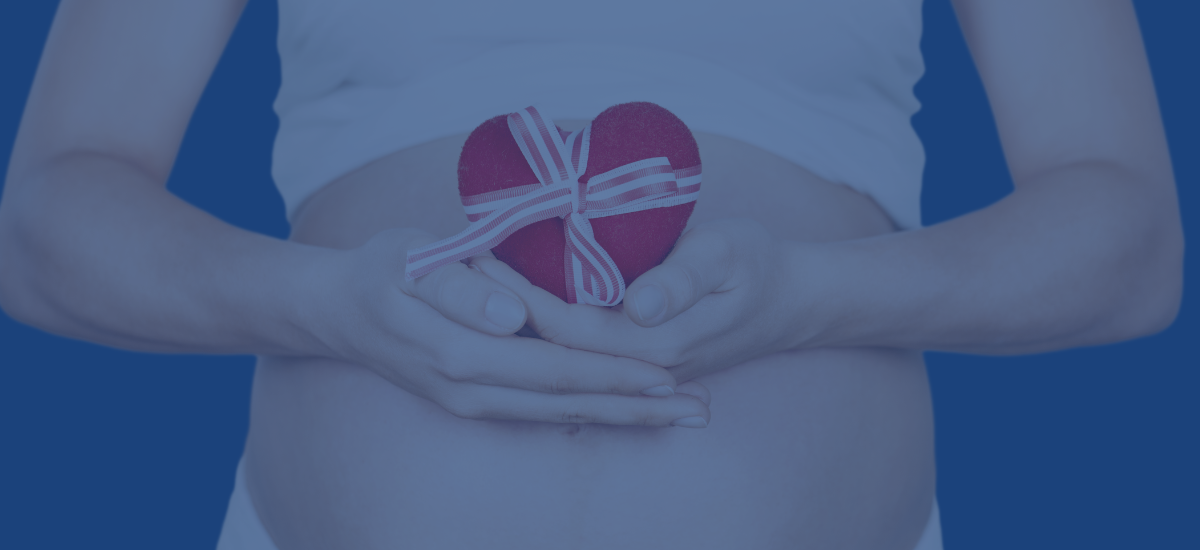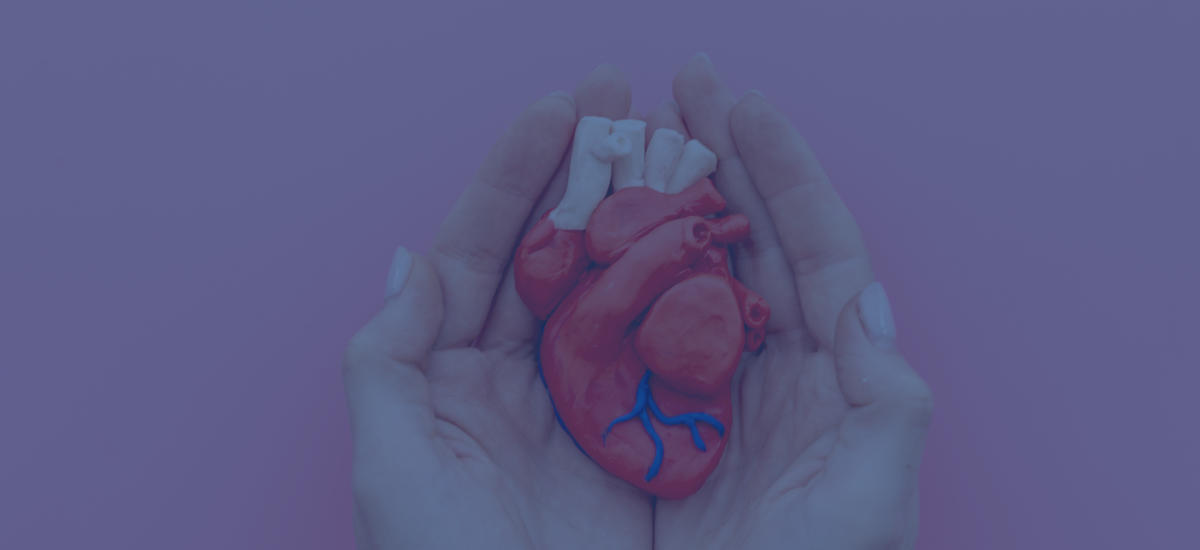Modern medicine has blessed us with numerous health treatment options that help extend our lives. It includes treatments such as Heart Transplant, Angioplasty, Heart bypass, and Mitral Valve Repair & Replacement. A patient diagnosed with heart disease is advised by their doctor to undergo heart surgery. This gives the patient a new lease on life. For example, Angioplasty and Heart Bypass Surgery both are treatments that deal with blockages caused due to plaque buildup in the inner lining of an artery. If left untreated, these blockages can lead to heart attack and heart failure.
Heart surgeries have been associated with numerous advantages. To be more specific, a heart surgery can lower the risk of stroke, reduce rhythm problems, lower the incidence of heart attacks and heart failure, and lower the death rate for high-risk patients.
After a patient undergoes heart surgery, they need at least 2-3 weeks to recover. We have shared a few guidelines about things you should do and things you should avoid doing after heart surgery. These guidelines will speed up your recovery.
Want to know in detail about what to do and what to avoid while recovering from heart surgery?
A] Things You Should Do After Heart Surgery:
Before getting discharged from the hospital, your doctor will likely provide you with a list of instructions you have to follow. These instructions will be focused on your diet and activities.
Following these instructions is crucial for the recovery phase. Your doctors will advise you to take things easy in the beginning. Some hospitals might also share a diet chart that can offer you the nutrition required to heal quicker. You have to avoid performing any strenuous activities for around 2-3 weeks after surgery. This duration could extend for certain patients in rare cases. Let’s take a look at things that will speed up your recovery.
- Make sure to check your pulse daily. It will help you determine if your heart is beating within a safe range. If you experience any irregularities, get in touch with your doctor. It is essential to stay active after your surgery. Keep moving instead of sitting in the same spot for a long time. You can gradually increase the pace of your activities over the first three months after heart surgery.
- Check your weight daily, maintaining a record that you bring to your follow-up appointments. It can help doctors determine the progress in your recovery.
- One of the great ways to get started with an activity is by walking around the room. It is considered good exercise for your heart and lungs after surgery.
- Initially, you’ll have some trouble adapting. You’ll struggle a little with your balance, which is why you have to be especially careful while climbing up the stairs. Once you regain your balance, walking and climbing will become much easier.
- You can do household chores but start with light chores like folding clothes or setting a table. These activities should be done only if you are feeling up to them. There is no pressure.
- If your healthcare provider hasn’t already shared diet advice with you, request a diet chart, which can help you get essential nutrition during your recovery period. It will accelerate your healing after heart surgery. Your diet should primarily consist of foods rich in protein and fiber. Read our blog “15 Incredibly Heart-Healthy Foods” to know what heart healthy foods to consume after surgery.
- Make sure you are taking the prescribed medicines as instructed by your doctor. In most cases, some of the medicines prescribed for the recovery period, which you might have to stop taking after recovery, and then there are other medicines that you have to take for a lifetime. Discuss this with your doctor. At home, you can prepare a medicine chart that can help you keep track of your medicine intake. If your list of medications includes pain medicines, make sure to take them half an hour before going to bed.
- Getting enough Rest and sleep are essential to your recovery and healing. Not getting the required sleep can make you feel overtired and adversely affect your recovery.
B] Things You Should Avoid After Heart Surgery:
Recovering from heart surgery will be much easier and more effective if you only take a few precautions and give yourself time to heal. Follow the guidelines below to ensure that you stay on a path of a speedy recovery. By straying away from these habits, you can reduce your cost of heart bypass surgery in the long term.
- Avoid exercising outside in extremely cold or hot weather.
- If you feel dizzy or experience any pain in your chest while exercising or performing any activity, you should stop doing it.
- Avoid eating foods with high levels of saturated fats as they can further impact your heart health, causing a rise in bad cholesterol levels and increasing the risk of heart disease.
- Take good care of your wound post-surgery. Be a little cautious in using your upper body and arms. Avoid reaching backward or putting pressure on your arms. You should also ensure other people do not pull on your arms when they are trying to assist you in moving around.
- Avoid lifting anything heavier than 2-3 kilograms (5-7 pounds).
- In most cases, patients can travel or have sexual intercourse four weeks after heart surgery. However, you have to check with your doctor to confirm the same.
- Avoid taking any over-the-counter medicines or other medicines not prescribed by your doctor. If you were taking prescription medicines prior to your surgery, confirm with your doctor before taking them.
- Avoid drinking or consuming caffeine in any form before sleeping.
C] When Should You Reach Out To Your Doctor?:
It is necessary to get in touch with your doctor in case the following things happen:
- Infected wound with pus-like discharge, swollen or red wound
- Shortness of breath or chest pain that doesn’t go away.
- Severe headache that doesn’t go away
- Cough that doesn’t go away
- Chills or fever over 101°F
- Extreme fatigue, dizziness, or fainting episodes.
- Irregular pulse, either too fast (over 100-120 beats per minute) or too slow 60 beats per minute.
- Experience difficulties taking your medicines
- A sudden increase in weight by more than 1 kg (approximately 2 pounds)
Want to know in detail about what to do and what to avoid while recovering from heart surgery?
Experiencing these symptoms may signal a serious condition. In such cases, it becomes necessary to contact your doctors without wasting any time. If you are located in Mumbai and experience these symptoms, we advise you to reach out to a Cardiac Surgeon in Mumbai.






